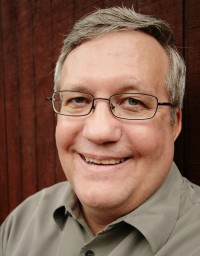Prayer in the whirlwind
The answer that comes out of a tornado is not the kind of answer we want.

The tornado that hit Moore, Oklahoma, flattened two schoolhouses, left 24 dead and demolished 12,000 homes in a suburb of 41,000 residents near Oklahoma City. It was as powerful and as destructive as a tornado can be.
This time, there were no preachers saying that the tornado was a form of divine judgment—perhaps because Oklahoma is in the heart of the Bible Belt and thus, in the eyes of the conservative preachers and theologians who have elsewhere glimpsed God’s hand of judgment, not deserving of God’s destruction. One resident told CNN’s Wolf Blitzer that she was not thankful for the blessing of surviving because she was an atheist. But in Oklahoma City atheists are a distinct minority. That means a lot of faithful, active Christians were in the path of this tornado.
The best answer to theological questions about the tornado was kindness shown to the victims. And on this count many people reached out to help clear debris, as well as give money for recovery. My niece and sister-in-law, who live in the Oklahoma City area, volunteered at a pet rescue shelter. In a building the size of three football fields, they said, were sheltered innumerable dogs, cats, birds, ferrets and other pets, waiting to be claimed by their owners.
Read our latest issue or browse back issues.
But the theological questions linger. Why can nature go so disastrously out of control? How can a good God not protect his creatures from such maladies? The Bible and biblical theology offer no deeply satisfying answers to these questions.
But there are instances of tornadoes—or at least their nearest equivalent, whirlwinds—in scripture. The most telling instance is the story of Job. After Job has been reduced to the nadir of his suffering and after much crying out to God, Job finally gets an audience with the One who has let him fall into such pain. God answers Job out of a whirlwind: “Who is this that darkens counsel by words without knowledge? Gird up your loins like a man, I will question you, and you shall declare to me” (Job 38:1).
God answers Job’s questions with God’s own questions. God’s answer, such as it is, is a declaration that God alone is God. God alone set the foundations of the earth, laid all its measurements, fashioned clouds like garments and dammed the sea’s mighty waves. What can mere humans say to that?
Thus the answer that comes out of a whirlwind—or a tornado—is not the kind of answer we want, or at least not an answer that responds to our agonized questions of theodicy. It is an answer that God is King and Creator of the universe and thus in some sense in control, sometimes despite appearances. Since we have no better answers than that, our best response is the one I mentioned earlier, the response of human kindness. I should add that for Christians this is only one part of our most crucial response. The other part is prayer.
Prayer in the wake of a tornado raises its own questions. It seems right and good to pray in thanksgiving for those who were not struck or who were struck and survived. But what about those who were struck and who died? We cannot simply pray a prayer of thanksgiving for them.
That is why the best response is not prayer, singular, but prayers, plural. We are called to offer different prayers for different situations. For those whose homes and lives were spared, we lift up a prayer for thanksgiving. For those whose homes and lives were lost, we offer prayers of sorrow and intercession for the dead. For some, joyful thanksgiving; for others, prayers of commiserating lamentations.
I suppose no one more appreciates or better knows the need for the multiplicity and particularity of prayer than pastors, who on any given day may visit (and pray with) one parishioner cured of cancer and another whose doctor has just announced her cancer as terminal. Or to stay with our theme of natural disasters: the same pastor may visit those who were spared from a tornado and those who lost loved ones to it. No single prayer will do for these different circumstances. Only particular prayers, tailored to each situation, will do.
But there is one all-encompassing prayer. That is the eschatological prayer, the prayer that ultimately all will be well, and all manner of things will be well. Accordingly, we regularly pray the Lord’s Prayer: “Thy will be done, on earth as it in heaven.” And that will is first and finally a loving and benevolent will, one set on restoring and healing all of creation. Creation will cease its groaning and travail (Rom. 8). And loved ones separated by death will be restored to one another. To paraphrase C. S. Lewis, the voice that speaks from the whirlwind is not always safe, but it is good.






